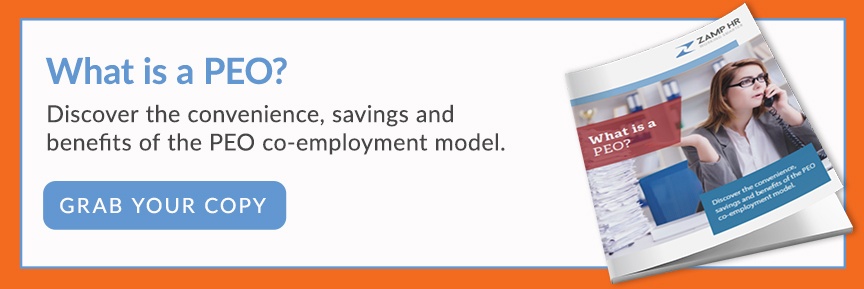Employee-focused litigation had a bit of a slowdown in the first half of 2020 as companies and employees alike worked to figure out how to navigate Covid-19. But now that businesses are taking steps to bring employees back to physical locations and more employees are put in harm's way, employee-initiated lawsuits have seen an uptick in the first half of 2021.
From overtime violations to discrimination claims, companies across the country have seen an increase in employee lawsuits recently. It's easy to be sued by an employee if you don't know and follow the intricate employment laws and compliance regulations. Read on to find out how you can avoid costly and embarrassing employee lawsuits.
Avoiding mistakes that lead to employee lawsuits is key. But if you don't know that you're violating a rule, you cannot take steps to correct your company's behavior. Here are some of the most common actions businesses take that lead to employee lawsuits.
Not Paying Overtime
Under the Fair Labor Standards Act (FLSA), there are two major classifications of employees: exempt and non-exempt. Exempt employees are usually paid an annual salary, though not always, and have a higher level of responsibility. Exempt employees are not eligible for overtime pay.
Non-exempt employees, however, are usually paid an hourly rate and have lower levels of job responsibilities. Non-exempt employees are eligible for overtime pay.
Many companies have trouble properly classifying employees. And that's where the issues begin. Misclassification can lead to costly government fines, besides employee lawsuits. If your company misclassifies a non-exempt employee as exempt, you may not pay them overtime, which could be a violation of the FLSA. You may also face employee lawsuits.
Discrimination Claims
Employers must pay close attention to relevant discrimination laws. During the beginnings of the Covid-19 pandemic, employers were challenged with what to do about staffing, which included the employees to lay off, furlough, or terminate. These decisions are ripe for potential discrimination claims.
Discrimination in the workplace can come in many forms, including:
- Wrongful termination
- Harassment
- Sexual harassment
- Bullying
- Unsafe working conditions
Every time you make a business decision, whether the decision is to not hire someone or which employee to terminate, you should make absolutely certain that you have a legitimate business reason for doing so. Also, ensure you adequately document your reasons and the steps you took. This documentation may not prevent employee lawsuits, but it can prove vital to show that you had a non-discriminatory reason for making the decision.
Workplace Safety
Depending on the industry you're in, worker safety may be a central focus of your business or it could be an afterthought. Your workers' compensation insurance usually covers worker safety claims. However, employees can bring claims of negligence in certain situations.
If your company has a culture of ignoring safety concerns or not providing adequate safety training, you could face employee lawsuits alleging negligence. This often comes in the form of alleged violations of state and federal workplace safety laws, Occupational Safety and Health Administration (OSHA) violations, and ignoring past injury claims.
Retaliation and Whistleblower Claims
When an employee makes a complaint against another employee or against an employer, the law forbids any retaliation against the employee making the complaint. The same is true of whistleblower claims. Any retaliation can not only be met with costly government fines but also with expensive employee lawsuits.
If, for example, you have an employee who made a complaint about your company's safety issues, and you have a manager who retaliated against the employee for making the complaint, you may be subject to the fines and penalties for the safety violation, along with fines and penalties for the retaliation against the employee. The latter often vastly outweighs the initial safety fines in terms of financial penalties.
Employee Leave and Benefit Claims
Employers must be careful about how they deal with leave and benefit claims, especially as companies bring employees back to offices. Many employees are reluctant to return to offices without safety protocols in place.
In years past, employers could simply terminate employees who refused to show up for work. But today, companies must navigate the Families First Coronavirus Response Act (FFCRA) and state leave laws. The FFCRA and some state leave laws require employers to provide additional time off work to cover employees who need to be out to care for themselves or a family member who has Covid-19.
These laws can present unique challenges on top of the already-confusing Family Medical Leave Act (FMLA) that employers must adhere to. Because of the complexities and the potential costly downside for violations, employers would be wise to seek advice and guidance from experts.
Outsource Safety and Compliance Errors to Experts
Outsourcing compliance might seem like something you should be wary of doing for your company. After all, you know your company better than anyone else, and you know the exact issues your company faces. However, outsourcing your compliance needs to experts could help you better prepare for and avoid costly and embarrassing employee lawsuits.
The most comprehensive protection comes from partnering with a Professional Employer Organization (PEO). A trusted PEO partner can provide your company with tools to help you set up programs and have a culture of compliance. Your PEO will also guide you through any compliance issues and headaches you may face, working with you to get your company through the legal challenges.
To learn more about PEOs, download our free eBook "What is a PEO?"



